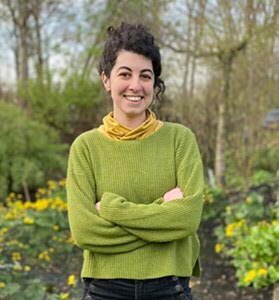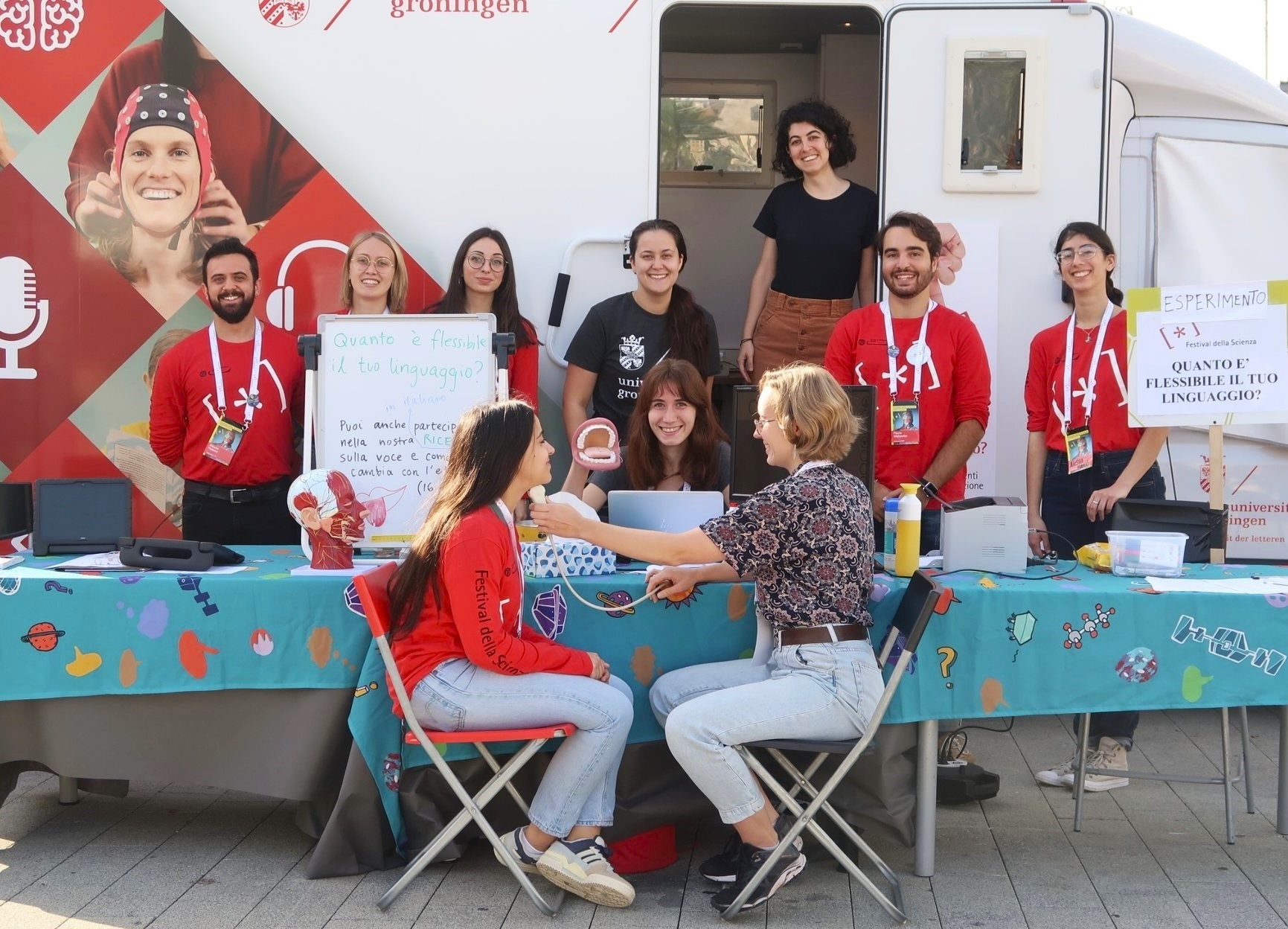Defne Abur brings innovative speech research to the YAG
Defne Abur, assistant professor of Speech and Speech Technology, has joined the Young Academy Groningen (YAG). With a unique interdisciplinary background and a commitment to societal inclusion, she is set to make significant contributions, promoting innovative research and engaging the broader public in the YAG.
Text: Luisa Velásquez, Corporate Communication

Defne Abur studies how changes in speech, from breathing to speaking, can help us understand ageing and various diseases. Her research looks at how speech develops and changes as people age, as well as how conditions such as oral cancer and neurological disorders affect the way we talk.
An intersection of disciplines
With a Bachelor’s degree in Engineering and Biomathematics and a PhD in Speech, Language, and Hearing Sciences, Abur brings a multidisciplinary approach to her research. Her engineering background in electrical signal processing provides a solid foundation for studying sounds. ‘Electrical signals are what we use to study sounds: a microphone converts sounds to electrical signals. So, using electrical signal processing, i.e. engineering, we can study sounds, i.e. speech and hearing,’ she explains. During her PhD, Abur explored how different disorders affect speech and hearing, using her engineering background to better understand these complex processes.
Striving to make a difference
Abur’s research is particularly focused on the ageing population and individuals with neurological disorders. ‘The population is becoming increasingly older and neurological disorders are becoming more common, but speech technologies do not work as well for these groups,’ she states. Abur is passionate about creating a more inclusive society where everyone can fully participate. She intends to improve speech technologies through her research to better serve these populations, making it not only relevant within speech studies but also societally impactful.
Speech as a window into neurological health
In her research, Abur examines how neurological disorders, such as Parkinson’s disease, impact speech. For instance, Parkinson’s can cause speech to become softer, less varied in pitch, and less clear. ‘Changes in speech can be one of the early symptoms of Parkinson’s, many years before the physical symptoms begin,’ Abur points out. Her research seeks to use these insights to help with the early diagnosis and treatment of such conditions, ultimately contributing to the development of targeted therapies for specific symptoms.
Bringing the lab to the people
Abur’s research is made possible by the SPRAAKLAB. ‘It’s a speech research lab on wheels!’ she says. This creative facility allows her team to set up and conduct experiments in various locations, such as music and cultural festivals, making research more accessible to a diverse range of participants.

Connecting with the community
Abur recently joined the Young Academy Groningen (YAG), a group of talented young researchers from various disciplines of the University of Groningen and the UMCG. The YAG works independently to create awareness about science and scholarship matters that are important to early-career researchers. They aim to stimulate dialogue and collaboration within and outside the UG. Abur’s dedication to outreach is one of the main reasons for her involvement in the YAG. She believes that communicating research findings beyond the University is crucial for societal impact. ‘I have attended festivals and other events to share information about how we study speech, through demos and experiments,’ Abur notes.
She has already started her mission to actively share her work with the public in collaboration with the YAG. ‘At the Noorderzon Festival this year, I participated in the YAG “flash lectures” series, where I gave a talk about my research,’ she says. By joining the YAG, she will continue to integrate her interdisciplinary research with the outreach efforts. ‘I look forward to continued outreach about my research in collaboration with YAG,’ Abur concludes.
More information
| Last modified: | 24 September 2024 09.47 a.m. |
More news
-
12 March 2025
Breaking news: local journalism is alive
Local journalism is alive, still plays an important role in our lives and definitely has a future. In fact, local journalism can play a more crucial role than ever in creating our sense of community. But for that to happen, journalists will have to...
-
11 March 2025
Student challenge: Starting Stories
The Challenge Starting Stories dares you to think about the beginning of recent novels for ten days.
-
11 March 2025
New: Sketch Engine, tool for language research
Sketch Engine is a tool for language research, which can also be used for text analysis or text mining.
